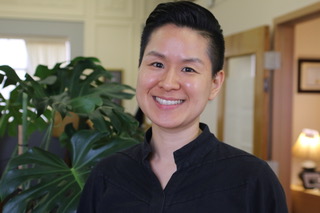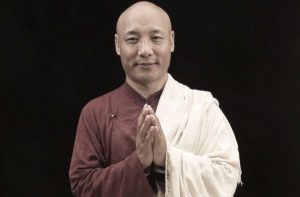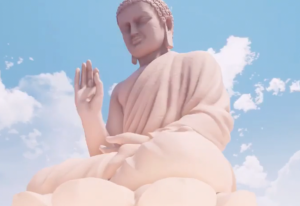
In light of the global situation—marked by conflict, disharmony, turmoil, and war—the pressing question arises: how can we achieve genuine peace in the world? Is it destined to remain merely an aspiration? How do we begin, especially during times when we feel overwhelmed by feelings of hopelessness or skepticism?
The founder of Won Buddhism, Sot’aesan, once said:
The wars are those that arise incessantly in the countries of people’s minds. The country of the mind is originally untouched and peaceful, bright and pure, but it becomes dark and turbid, complicated and disturbed, due to Māra’s minions of selfish desires, leaving few peaceful days in this infinite world. . . . If we probe the origin of all the small and large wars of individuals and families, societies and countries, they all derive from the wars raging in people’s minds. Therefore, the mind’s war is the origin of all other wars and the most severe of them all.
(The Doctrinal Books of Wŏn Buddhism, 205)
Sot’aesan emphasizes that to realize peace, it must first be nurtured within us. A mind riddled with fury and bitterness tends to escalate conflicts and hostility, hindering the path to peace. On the other hand, a tranquil mind fosters actions of peace, generating an environment rich in love, kindness, and empathy, crucial for cultivating harmonious relationships.
However, we are faced with the harsh truth of a world fragmented and disconnected. Sot’aesan recognized the societal challenges that globalization would bring, including problems related to inequalities, imbalances, and divisions. He points out: “. . . in the present world, with the development of scientific civilization, people’s greed is surging day by day. Hence, if we do not engage in training that cultivates the mind-field, we will not be able to subjugate that greed; and if we do not subjugate that greed, it will be difficult for this world ever to find peace.” (The Doctrinal Books of Wŏn Buddhism, 208)
Sot’aesan identifies that the roots of animosity, discord, and aggression stem from the failure to cultivate the mind, leading to ignorance. He encourages us to introspectively assess how our minds contribute to suffering and to seek solutions for it. One method he proposes is the practice of keeping a diary as a means of deeply examining and comprehending our daily lives. This particular contemplative practice moves people from unawareness to understanding, from exclusion to reciprocity, and from fighting to cooperation.
Diary writing focuses on recording how we manage our body and mind, which is the tool to increase awareness. This practice involves assessing our daily actions, determining whether they were wholesome or unwholesome, and understanding the balance of our transgressions or merits. The practice enhances our ability to make informed choices in all our activities.
For me, this particular practice has been incredibly beneficial. It’s not the “Dear diary” type from my younger days, which was more of an escape from reality or a reinterpretation of my life. Instead, this form of diary writing mirrors what is present without distortion. It’s a method that leads me inward, equipping me to confront daily situations with honesty, vulnerability, and courage.
My teacher advised me that the initial step in diary writing is, “documenting the event exactly as it occurred, like snapping a photo,” and recording how I responded to the situation. Initially, this practice was challenging for me, particularly after years of habitually censoring my diary entries. In many respects, I was reluctant to acknowledge my own biases and attachments, or the ways in which I interacted with others. However, over time, the act of recording events as if taking a photograph taught me to embrace honesty, even when it highlighted my flaws and mistakes.
This process improved my awareness of transient thoughts, sudden emotions, and judgmental views I held about myself and others. My diary writing evolved into a valuable tool, enabling me to embrace my emotions as insightful guides and assess aspects of myself that required healing or extra care. Through this journey, my teacher showed me how truthful writing could be a catalyst for profound transformation.
One powerful device of diary writing is the practice of stopping and identifying the trigger of a disturbance and the thoughts or emotions that arise at that moment. We often fail to recognize when a disturbance happens, especially when we’re on autopilot and can’t stop to take inventory of the cause of complicated emotions. But when we fail to pause in a challenging situation, it’s easy to revert to habitual patterns and react to negative thoughts or overpowering feelings. Consistent diary writing helps us develop the strength to cease reacting to situations that provoke us.

In other words, diary writing helps us cultivate the power to stop incessant thinking and create space before responding. Each pause is like slowing down before approaching a speed bump and preventing a potential accident from happening. Pausing in this way helps us take the standpoint of an observer of our experience and reframe the situation. This shift enhances our appreciation for diverse viewpoints and enables us to break free from rigid beliefs, opening up new perspectives. Therefore, this one pause has the power to alter the subsequent course of events and lead us down the path to less suffering.
Many of the students with whom I’ve shared this kind of diary writing have expressed their gratitude for how much they’ve learned about themselves and how empowered they feel to modify their reactions. Here is a diary entry titled “Job Opportunity” from one of my students:
I received a call with a job offering for 15 hours a week at a well-known herb company. I’m friends with the company owner’s daughter and she immediately thought to call me when the position opened.
I was very excited and had a strong desire to take this position because I would get to work with a well-known herbalist. I was also very flattered and felt slightly obligated to answer “yes” since they were offering the position to me before they put up an official job posting. I also was excited by the prospect of more income because I often worry about finances.
I paused and asked if I could have time to think about it before deciding. I had just left a job at a local acupuncture clinic in part because I wanted more time to focus on my studies. I knew I could take this new job, but it would likely come at the cost of my physical and mental health. I had to ask myself the question: would I be willing to give up my daily practices, sleep less, or put fewer hours into school to work with this amazing company?
In the past, my answer would have been “heck yes,” but I realize that’s because I had normalized my own disfunction. I used to do too many things and get sick, have panic attacks and depression because my desire toward “success” outweighed how I valued myself.
I am in the process of recontextualizing what it means to be “successful.” Perhaps success means eating, sleeping, and being well. I have enough financial stability right now to not need the extra money. Yes, that means living off of student loans, but I trust that I can and will pay them off in the long run.
I ended up declining the offer. I am grateful to have stopped, examined my own emotional response, then decided when I had given some time for reflection independent of my initial impulse.
As students persist with the diary writing practice, they begin to carefully evaluate the advantages and disadvantages, drawing from past experiences. This process enhances their self-awareness and courage. They develop the skill to pause, introspect on their emotional reactions, and make choices that align with their long-term objectives and overall health. This reflective practice aligns with the Buddhist approach of focusing on underlying causes rather than hastily assigning blame to external factors or individuals.
This regular practice boosts their confidence in their own decision-making abilities. Through consistent diary writing, students learn to remain faithful to their personal beliefs and what they consider most beneficial for themselves.
The journey toward peace is indeed challenging, and diary writing can be a source of strength and clarity in this endeavor. It provides a consistent framework for reflection and growth, reinforcing our commitment to the principles of peace and justice. By continuously engaging in this practice, we not only better understand ourselves but also contribute to turning the vision of a peaceful and just world into reality.
Essentially, diary writing transcends being merely a personal exercise; it acts as a foundational step toward achieving broader objectives of communal harmony and fostering relationships that are mutually enriching.
References
2016. The Doctrinal Books of Wŏn Buddhism. Iksan: Wŏn’gwang Publishing.
Related features from BDG
The Relevance of Buddhism in the 21st Century
How the Magic Works
Funereal Reflections on Nurturing
Acceptance and Autumn Leaves
In the Footprints of the Saints: Diary of a Pilgrim’s Inner and Outer Journeys in Sri Lanka












